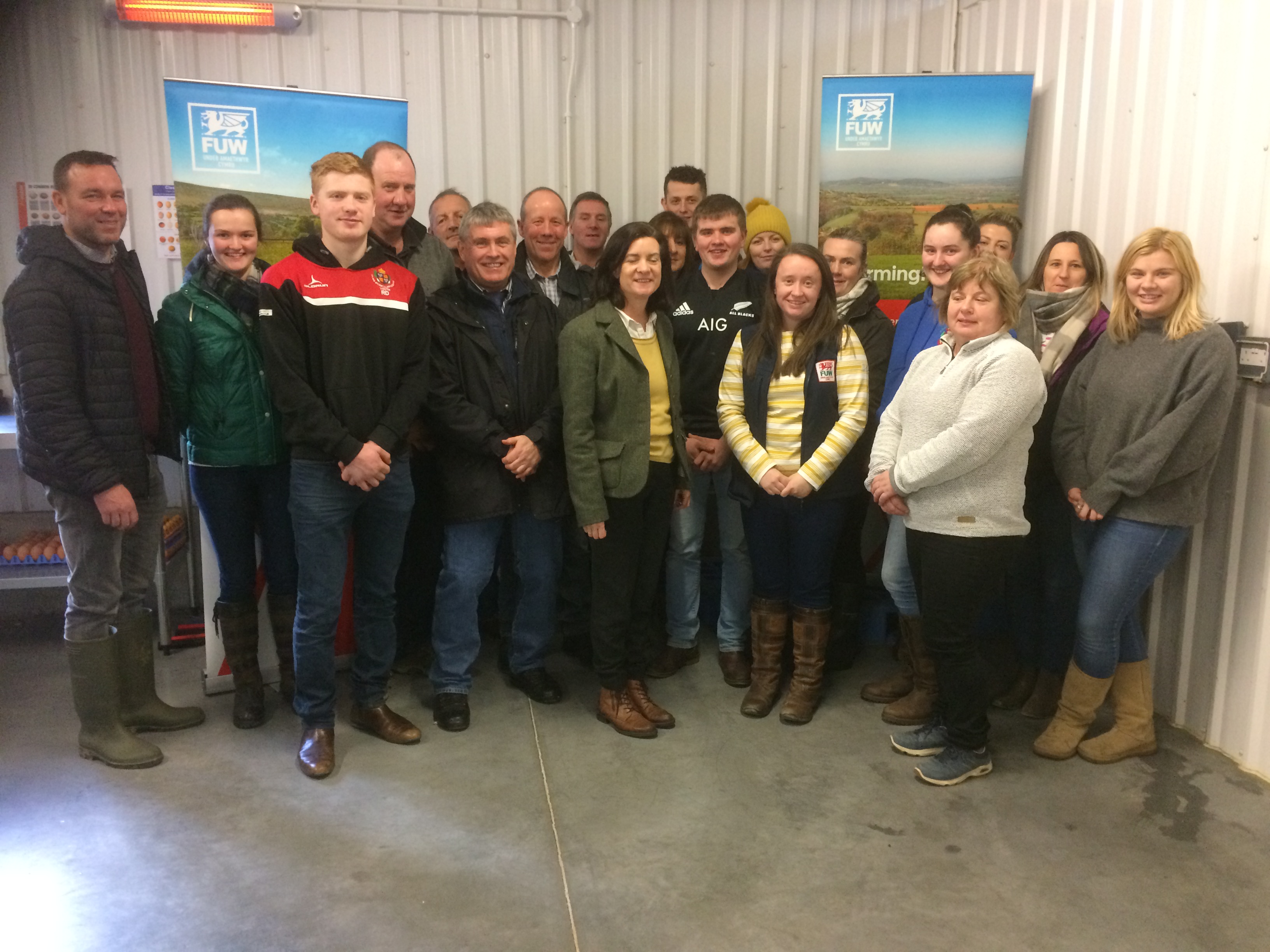
The meeting was held on Thursday, February 7, at Cwmcowddu Farm, Llangadog, a mixed 350 acre family farm, which is home of the Davies’ family, who have diversified into egg production to future-proof their business.
Delegates enjoyed a tour of the farm, seeing the egg production unit which was set up in 2017 and is now home to 32,000 hens, as well as the dairy, beef and sheep production aspect of the farm.
Speaking at the event, Chris Davies said: “Most people have specialised in one commodity over the last decade but we have rightly or wrongly stayed a mixed unit. We have a daughter Ffion and two sons, Aled and Rhodri, who are the fourth generation on the farm. The boys are both keen to remain in the industry, but with the price of land continuing to rise it is becoming more and more difficult to make a reasonable return from the investment.”
“As a family we therefore decided to diversify into the free range egg sector. The egg industry is very similar to dairy, in the sense that you are still tied to the farm seven days a week, 365 days of the year, with volatile prices, but without the lack of sleep during calving.
“How the business does from now on will to a degree depend on what trade deals we can get, but also what farming policy looks here at home. We’re grateful to have been able to discuss some of those worries with Eluned Morgan here on farm and hope that the Welsh Government will do what is within their power and provide the stability that is desperately needed,” said Sian Davies.
Brexit and its implication for family farms, such as Cwmcowddu, were further discussed and FUW Carmarthen CEO David Waters said: “Contingency planning for a hard Brexit must be stepped up. The Welsh Government has to work alongside other UK Governments to ensure action can be taken at short notice to protect our farmers and food producers from the sort of catastrophe we have only previously witnessed during Foot and Mouth disease outbreaks.
“We need farming families like the Davies family to keep producing food. Sadly the implications for the Welsh sheep industry, should we see those hard-Brexit predictions come true, are anything but encouraging.
“With uncertainty of what’s to come, our competitors are already making the most, by gearing up their businesses to take over supply chains that UK companies have taken decades to build up.
“In addition, we still don’t know what tariff rates will be charged on imports from other countries after March, as the draft tariffs will not be published until the end of February and need to be approved by Parliament - so deals with importers must be reached with no knowledge of the additional costs likely to be incurred at ports.
“And of course setting tariffs too low risks opening the floodgates to cheap food produced to different standards and causing considerable harm to our farmers and food industry, while also giving away negotiating capital for future trade negotiations.”
South Wales Vice President Ian Rickman added: “We would like to thank the Davies family for showing us around their farm business. The determination of our farmers to make a success of things never fails to inspire me.
“Our farmers are already facing a potential perfect storm in the form of Brexit and the additional proposals here in Wales threaten to increase the size of the waves by feet.
“The FUW is duty bound to raise concerns, and ultimately leave no stone unturned to challenge moves which would add to our industries’ problems and I would therefore also like to thank Eluned Morgan for listening to our concerns here today.”
Speaking after the visit Eluned Morgan AM, said: “The Davies’ family have taken some really important steps to future proofing their farm, building on their skills and ensuring the farm stays within the family.
“I was impressed at the operation of the facility which not only meets growing consumer expectation on production standards is of low environmental impact and produces 30,000 eggs per day for the British market.
“The challenges of Brexit at this stage cannot be underestimated and I was pleased to hear the views of members of the FUW Academy on this and other urgent matters. For our farmers, and business owners across rural Wales, the uncertainty being created in Westminster over our future relationship with the EU is already being felt. That is why I, and the many who agree with me, stand firm in our opposition to a ‘no-deal’, because the impacts of such a disastrous failure will be felt most amongst our farming businesses and in rural, low pay communities.”


